Venezuela is a country of incredible contrasts, with jaw-dropping natural beauty and a complicated history.
Sitting on South America’s northern coast, it’s packed with diverse landscapes—from the towering Andes and dense Amazon rainforest to the Caribbean coast, home to offshore escapes like Margarita Island.
One of its biggest claims to fame is Angel Falls, the world’s tallest waterfall, found in Canaima National Park among the stunning tabletop mountains called Tepuis.
Anyone who has seen the movie Up will remember that Ellie wanted to move to Paradise Falls, the Disney and Pixar version of Angel Falls.
However, Venezuela is far from a Disney movie in many respects.
At one point, Venezuela was one of the richest countries in Latin America, thanks to its massive oil reserves.
But political turmoil, economic struggles, and corruption have hit hard in recent years, leading to inflation, shortages, and security issues.
Visiting this country isn’t easy or recommended by most governments across the globe.
Safety and logistical challenges mean you’ll need to plan carefully.
I rarely give a high-risk designation to a country unless it’s warranted, and unfortunately, that’s where Venezuela lands for the near and possibly distant future.
Warnings & Dangers in Venezuela

OVERALL RISK: HIGH
Venezuela has a high risk for just about every reason you can imagine, from exorbitant crime rates to lack of law enforcement to basic life needs often in short supply.

TRANSPORT & TAXIS RISK: MEDIUM
Getting around Venezuela can be tricky and sometimes risky. Public transport is unreliable and often a hotspot for theft. Taxis, especially unlicensed ones, can pose serious dangers, from overcharging to robberies. Hiring a private security firm would be the best option and even that still comes with risks.

PICKPOCKETS RISK: HIGH
Pickpocketing is a big problem, especially in crowded areas like markets, bus stations, and even tourist spots. Thieves work in groups and are quick. Keep your belongings close, avoid flashy jewelry, and use anti-theft bags if you’re out and about. In fact, the risk here is so high that you're lucky if you ONLY get pickpocketed.

NATURAL DISASTERS RISK: MEDIUM
Venezuela faces risks from earthquakes, floods, and landslides, especially during the rainy season. Infrastructure can be weak, making recovery efforts slow. Keep an eye on weather updates and have an emergency plan if you're traveling during peak rainy months.

MUGGING RISK: MEDIUM
Muggings are a serious concern, even in broad daylight. Armed criminals often target tourists for valuables like phones and cash. Kidnappings and random law enforcement harassment and arrests are common.

TERRORISM RISK: HIGH
The risk here is high, as terrorist groups are known to be in Venezuela and some neighboring countries. That's on top of domestic terrorism within the government between rival political groups or cartels.

SCAMS RISK: MEDIUM
Scams are common here, with tourists making easy targets. If fraud doesn't work, criminals here have no problem escalating to violence. While you shouldn't visit here in the first place, don't trust anyone if you do go.

WOMEN TRAVELERS RISK: MEDIUM
Numerous organizations describe gender-based violence in Venezuela, and that's for women who live there. Visitors are no safer than anyone else and can face added risks of harassment and sexual assault. Don't go to Venezuela alone if you insist on going and stay out of sight at night.

TAP WATER RISK: LOW
If water is available (it's prone to shortages), it's not safe to drink anyway. Bottled water (also a big IF it is available) is the only option. If you get sick from contaminated water, there isn't good healthcare treatment in the country, and you won't have support from your home country to be medically evacuated.
Safest Places to Visit in Venezuela
The Venezuelan Ministry of Popular Power for Tourism (MINTUR) is responsible for developing and promoting tourism in the country.
However, as of this publication, its website isn’t working.
There is an Instagram page @minturvzla with some photos and information.
Plus, the links to several websites could work in the future.
Despite a lot of evidence to the contrary, the tourism minister said bringing visitors to the country is a priority to rebuild the economy.
“We are a safe, diverse, and beautiful country, with a warm and welcoming population,” Minister of Tourism Alí Padrón said in the summer of 2025.
“We are working hard to provide visitors with a world-class tourism experience.
We invite you to come, see this Land of Grace, and fall in love with it”.
While there are far too many risks for us to recommend any “safe places” to visit, some say that Margarita Island is one of the least dangerous parts of the dangerous country.
One of the main draws to Venezuela is Canaima National Park, which is home to the tallest waterfall in the world.
Angel Falls drops a staggering 979 meters from above.
If this is your plan, book through a reputable travel agency, get an all-inclusive trip, stick with a group, and book flight arrangements well in advance.
Even visiting Colombia, Guyana, and Brazil would be safer than considering Venezuela, according to the U.S. State Department.
Argentina and Patagonia would be the safest places in South America to visit.
Places to Avoid in Venezuela
While reiterating that the entire country is dangerous for many reasons, there are some extra risky parts of Venezuela detailed in government warnings.
Avoid traveling between Simón Bolívar International Airport and Caracas at night.
You can’t even preview the route on Google Maps because street-level mapping isn’t available.
Caracas is known to be dangerous for political unrest and infrastructure issues on top of high crime rates, but the east side barrios (run-down neighborhoods) are outright dangerous.
The United Kingdom discourages all travel to the country but says the border areas near Columbia and Brazil are especially risky.
This is due to drug trafficking and kidnappings that are all too common.
Safety Tips for Traveling to Venezuela
- Venezuela has a special police force known as “Policía Turística” (Tourist Police) in some major tourist areas. These include Margarita Island, Canaima National Park, and parts of Caracas. However, you can’t rely on them very much for help, as their effectiveness is hit or miss.
- If you are facing a criminal or medical emergency, first try to call 171 for help. Ambulances are few and far between, and hospital care is rudimentary at best.
- Don’t bring illegal drugs into the country, and that includes any form of marijuana. Don’t carry a bag for someone, since drug runners like to use tourists as mules. Drug penalties are harsh, and prison conditions can be inhumane.
- Avoid demonstrations or protests, as the crowd can turn violent. Even police or opposing political groups sometimes use violence or chemicals to disperse crowds.
- Entering Venezuela with the wrong paperwork or missing documents can lead to visitors being deemed terrorists. This could lead to extensive prison sentences without any help from the government of Venezuela or the home country. In fact, there’s a good chance U.S. residents wouldn’t even be reported to the government.
- Getting medicine over the counter or through pharmacies is limited in Venezuela. This means even a case of traveler’s diarrhea could turn into something worse due to a lack of healthcare options.
- Chemoprophylaxis is recommended before traveling to certain parts of Venezuela to help prevent malaria. If you’re heading to rural or jungle areas, taking medication before, during, and after your trip can protect you.
- Knowing Spanish is very important when traveling to Venezuela. English is not widely spoken, even in tourist areas, and most locals, including those in shops, restaurants, and public services, communicate only in Spanish.
- Land border crossings in Venezuela are strongly discouraged, even if a traveler is heading to a safer country. Commercial air flights offer the safest way to leave, but even that doesn’t rank as a super safe option. The safest choice is not to visit the country.
- Check the safety risks of Canaima National Park, including unpredictable river currents, waterfall dangers, wildlife hazards, and anything else that might concern you in an outdoor environment. Have a way to treat water so it can be used for drinking. The humidity here can deplete you quickly of necessary hydration and electrolytes.
So... How Safe Is Venezuela Really?
I won’t mince words about this—Venezuela is not safe to visit.
The U.S. State Department says, “Do not travel to Venezuela due to the high risk of wrongful detentions, terrorism, kidnapping, the arbitrary enforcement of local laws, crime, civil unrest, poor health infrastructure.”
Canadian authorities state, “Avoid all travel to Venezuela due to the significant level of violent crime, the unstable political and economic situations, the risk of arbitrary detention, and the decline in basic living conditions, including shortages of medication, gasoline, and water.”
The United Kingdom’s Foreign, Commonwealth & Development Office advises against traveling to all parts of the country, punctuating that no consulate help is available if you choose to go.
In addition, travel insurance will be invalidated if you decide to visit Venezuela against the high-risk warning.
All countries with a travel warning echo the same concerns.
- High Crime Rates: Armed robberies, pickpocketing, and violent crimes such as carjackings and kidnappings are common, especially in major cities like Caracas and Maracaibo.
- Political Instability: Ongoing political tensions and frequent protests can escalate into violence, leading to roadblocks, clashes with authorities, and unpredictable situations.
- Economic Crisis: Severe inflation and shortages of basic goods like food, medicine, and fuel can lead to desperation-driven crimes and difficulties in obtaining essential supplies.
- Corruption: Corruption is widespread, including within law enforcement, making it difficult to rely on authorities for help and increasing the risk of scams and extortion.
- Lack of Medical Infrastructure: Hospitals and clinics often face shortages of medical supplies and trained staff, making it risky to fall ill or experience an injury while visiting.
- Frequent Power and Water Outages: Infrastructure issues can lead to blackouts and water shortages, which can affect safety, particularly in rural areas.
- Limited Transportation Options: Public transportation is unreliable and often unsafe, with risks ranging from theft to poor road conditions and fuel shortages causing travel delays.
- Presence of Organized Crime: Armed groups and criminal organizations control parts of the country, leading to increased violence and security risks in certain regions.
- Travel Restrictions and Closures: Roadblocks, military checkpoints, and sudden airport closures can disrupt travel plans and make it challenging to move around the country safely.
Travelers from countries with strong diplomatic ties to Venezuela—such as Russia, China, and some Latin American nations—might encounter slightly fewer bureaucratic hurdles or feel more comfortable navigating the environment.
That said, they are not immune to the overall safety risks, including crime and shortages of essential goods.
We do not give out “high-risk” labels haphazardly or without extensive research.
Venezuela is not safe for visitors.
How Does Venezuela Compare?
| Country | Safety Index |
|---|---|
| Venezuela | 33 |
| Morocco | 54 |
| Germany | 85 |
| Romania | 80 |
| Namibia | 71 |
| Netherlands | 75 |
| Chile | 79 |
| Mongolia | 71 |
| Qatar | 84 |
Useful Information

Visas
Given the high-risk level, check with your government to see if travel to Venezuela is possible or what requirements are needed. A passport and a visa are generally mandatory. If you lose any official documents in Venezuela, there's a good chance your home country will have no power to assist you, and you could be stuck or imprisoned for extended periods. The U.S. warning includes the following statement, "Entering or attempting to enter Venezuela without a valid Venezuelan visa can lead to indefinite detention without consular access. Visas are not available upon entry."

Currency
The official currency is the Venezuelan bolívar (VES). The country has experienced extended periods of exacerbated inflation and a crumbling economy. I would strongly recommend speaking with your bank to discuss options for obtaining currency there and what other forms are accepted. Some travel warnings say that robbers wait at the airports for foreigners to arrive, assuming they have cash in hand.

Weather
Venezuela has a tropical climate with wet and dry seasons. The dry season, from December to April, has moderate temperatures and less humidity. The rainy season, from May to November, brings heavy downpours and higher humidity, especially in lowland and coastal areas.

Airports
Simón Bolívar International Airport (CCS) in Caracas is the largest and busiest airport in Venezuela, handling most international flights. Other significant airports include Arturo Michelena International Airport (VLN) in Valencia and La Chinita International Airport (MAR) in Maracaibo.

Travel Insurance
While we highly recommend travel insurance for trips to Venezuela, finding a provider could prove challenging. Even if you find a policy, it could be negated by visiting a place so potentially dangerous. Countries like the U.S. won't be able to offer any assistance if you get stuck or need a medical evacuation.
Venezuela Weather Averages (Temperatures)
Average High/Low Temperature
| Temperature / Month | Jan | Feb | Mar | Apr | May | Jun | Jul | Aug | Sep | Oct | Nov | Dec |
|---|---|---|---|---|---|---|---|---|---|---|---|---|
| High °C | 30 | 31 | 32 | 32 | 31 | 30 | 30 | 30 | 30 | 30 | 30 | 30 |
| Low °C | 21 | 21 | 22 | 23 | 23 | 22 | 22 | 22 | 22 | 22 | 22 | 21 |
| High °F | 86 | 88 | 90 | 90 | 88 | 86 | 86 | 86 | 86 | 86 | 86 | 86 |
| Low °F | 70 | 70 | 72 | 73 | 73 | 72 | 72 | 72 | 72 | 72 | 72 | 70 |
Venezuela - Safety by City
| City | Safety Index |
|---|---|
| Caracas | 28 |
| Porlamar | 62 |
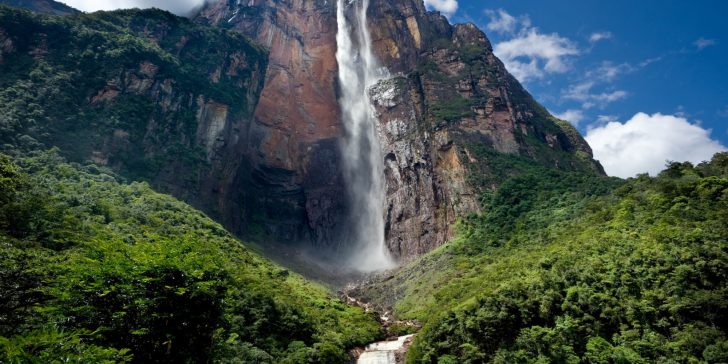
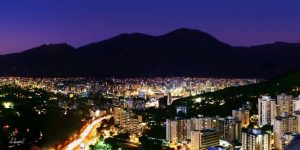

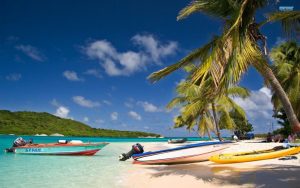
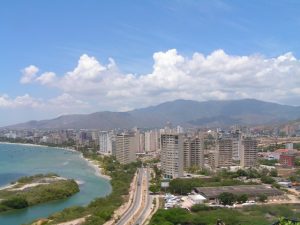

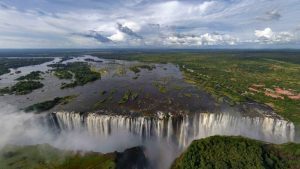





Calm and Tranquil
Wonderful!
Get rid of the e. Hugh Gashol. I like it though.
Woman risk medium?. Few years ago , miss world travel to her own country and her British husband’. Both rubbed and killed . Ultra high risk to get murder ..
MURDER KIDNAPPING DRUG SMUGGLING CORRUPT GOVERNMENT ! GOD BLESS THE VENEZUELAN PEOPLE. I PRAY FOR YOU. MADURO MUST DIE AND ROT IN HELL!!!!
Lived there for a year in 2010. Interrogated at the airport. Airport “official” tried to steal my passport as a I was trying to get back to Canada. Water from taps was brown. No electricity for hours at a time. Rolling blackouts due to corrupt government. Fast forward to 2020 and things are SO SO MUCH WORSE. No food, no medicine, coronavirus outbreak. They will Kill you for money, cell phone, food, car, shoes. Anything that you have, the government run colectivos will Kill you. Maduro will burn in hell along with his cronies and Hugo Chavez. Do not go there until there is a regime change. My wife is Venezuelan and she will never go back. Thank God she got her parents out of there. Most dangerous place on Earth.
Thank you for your honest and by what else I’ve read, accurate review and warning. I have a partner there and I was considering visiting Venezuela, not anymore!
I was thinking of visiting San Felipe Venezuela I am hoping it won’t be that bad… but I will do my research and see how things are down in Venezuela.
Please don’t go. Not safe at all
Yes exactly. PLEASE USE YOUR COMMENT SENSE. LEVEL 4 AVOID ALL TRAVEL.
Worst place on Earth. Do not go there. Zero rating.
Murder Capital of the World.
it’s so sad to see what venezuela’s become 🙁 such a beautiful country with amazing people! but it’s impossible nowadays… just sad
Lived for 3 years. no issues whatsoever, beautul beaches, good rum nice weather.
When was that….back in the 50s?
May he went down further like to Brazil or Argentina. Going to Venezuela it’s just like been in a war zone!
Don’t go here
I only lived here for two years before my family moved to the United States… but the stories my mom tells me are really horrific. It’s really dangerous, and much, much worse with the added coronavirus pandemic. Please don’t go here unless it’s absolutely necessary, or you will leave injured, robbed, or not leave at all (die here).
Amazing place, just be a bit careful downtown & at night
Ay ay ay…..no. It may be dangerous but my family thrives in Venezuela and only die of natural causes. Rlly nice ppl. Im not saying that there are criminals, my grandmas phone got stolen once. But thats IT. As a Venezuelan girl, amazing food,music (listing to it right now & vibing) and we have one of the tallest waterfalls in the world. Our president is TERRIBLE but ye, anything else is amazing. I recommend Arepas!
Don't go to Venezuela
Your family thrives there because they have adapted. The problem is that we as Venezuelans see the crimes as something common, we couldn’t leave the country so we had to comply, WE NORMALIZED CRIME, and you know that!!! but when you live in a first world country you understand that it was never OK, and we were just prisoners in our own country.
Jen,
It’s either that they have adapted as you said, and they think that atrocities that happen there are expected on this planet because they haven’t lived in a developed country or they are connected “enchufados” somehow with the tyrants that they have in their government and getting benefits from their corrupted system. It seems that his or her family is not getting the benefits of being part of their government because that Venezuelan said that their president was “TERRIBLE” and she or he could be in very grave trouble if their government members are aware of those adjectives that person is using about their dumbass president. With that said, I’m almost sure that they fall in the bracket of those who are prisoners of their lack of knowledge. This would be an excellent example of the Stockholm Syndrom to teach in schools and universities around the world to properly educate human beings to start combating and decreasing this kind of pure anarchic dictatorship.
The documentary named “How to Become a Tyrant”, and that Venezuelan individual and his/her family should watch it, of course, if it is available to get accessed in Venezuelan because I bet it’s banned there, played by Netflix explains how these brutal and cruelest geniuses including Lenin in Russia, Joseph Stalin in the Soviet Union, Adolf Hitler in Germany, Benito Mussolini in Italy, Hirohito in Japan, Muammar Gaddafi in Lybia, Saddam Hussein in Iraq, Idi Amin in Uganda, Fidel Castro in Cuba, Augusto Pinochet in Chile, Daniel Ortega in Nicaragua, Chavez and Maduro in Venezuela, Kim Jong Un in North Korea and his amazing granddaddy and daddy, and so on, follow a recipe or playbook for absolute power, outrageously enrich themselves, and rule with an iron fist massacring or eliminating whoever stands in their way.
I was born in Venezuela and lived there for 31 years, and the best decision I have done in my life was to get out from there 20 years ago to live in a decent way without the extreme fear of being killed in one of their daily robberies or express kidnappings, or basically die of starvation or from the stress produced by their anarchy, electrical outages, lack of running potable water.
My recommendation to that person, if she/he doesn’t mind, is to live sometime in a developed country and to invest a little more effort to get better educated so they can be able to escape from that mental prison.
It’s a shame that I cannot grade her comment with something less than terrible or one star.
My recommendation to anybody who reads this input is as follows: If you want to get a hell experience in a place where you don’t have any warranties to come back alive or whole, you can go to Venezuela.
And, I feel a profound shame because Venezuela was blessed with all kinds of natural resources and it had the biggest oil reservoir in the world, but there is no sack that can withstand the constant theft from their own functionally illiterate government members and whoever clown is connected to that corrupted and atrocious system, and this is why Venezuela is one of the worst places in this planet nowadays.
Hope this helps with your travel decisions.
Venezuela needs tourism
I spent 4 years in Venezuela and I was robbed once in my last 3 months. I travelled extensively throughout the country alone as a blonde, blue eyed European. The “Guardia Nacional” and the Venezuelan police were extremely polite and very helpful. I loved my time in this extremely beautiful country. Of course I was extremely aware of my surroundings 24/7. Most of South America is dangerous but Caracas has ALWAYS been extremely dangerous. I was there in the 1980’s and the 1990’s. It really was hell on Earth so I avoided it completely on this 4 year stay.
Is it safe for tourist. we want to travel to Venezuela from Trinidad and Tobago.
It isn't safe right now
It is not safe for tourists. They are currently having a humanitarian crisis. Please reconsider going there!
...
my mum went to Venezuela she liked it.But she went on an island.
That island its Margarita island!
e
Avoid all travel purposes, essential or non essential. but if you want to go, avoid the slums and risky areas.
Mostly accurate
The article is mostly accurate except for a few points:
– Woman safety. By saying that the place is equally unsafe for both genders automatically makes it a high risk instead of a medium. Also, if you’re a remotely attractive woman, get ready for some serious cat calling, just like in your average latin American country
– How prevalent murders are should be stressed more, criminals are armed to the teeth and wont hesitate to open fire if they don’t get what they want, or even because of mere sport, it is a cultural thing
– Even mentioning the risk of an earthquake is silly, you’ll get mugged a thousand times before feeling a remotely threatening tremor
Bottom line, don’t risk it. Similar natural beauties can be found in the neighboring and (relatively safer) countries, even the typical food is widely available in most Spanish speaking countries as huge Venezuelan colonies have been established by the more and more migrants running away from the unbearable situation there
Source: Venezuelan
It gets worse as time goes by
This is one of those cases where you should believe all the red flags. We’ve only had the misfortune of visiting it once, four years ago, but I wouldn’t go back unless it’s an island or the Guianan savanna ecoregion! I know it’s home to lots and lots of tourist attractions but I find it horrible trying to enjoy a foreign location when I have to constantly watch over my shoulder.
Slums should be absolutely no-limits zone, no matter where you find yourself in Venezuela, this is the first thing the guide told us.
Tourists are usually the go-to target, either for hefty ransoms or just for an armed robbery. Luckily this wasn’t the case but I got horrible notifications in the four days we’ve spent in Caracas. Local police have little to no interest in helping you; I’ve lost a film camera which I’m sure was somehow swiped from my backpack but they just told me to give it up after waiting almost two hours to fill a police report. Seriously? They looked like they all wanted to be somewhere else…
ATMS? Not safe, we were warned to use only the ones located inside banks or in very populated areas.
TAXIS? Overpriced, unpleasant and you risk being stopped by robbers.
We then went on to spend a full week in Los Roques which made it seem like we were in a whole different country. The place has almost zero crime, we weren’t disturbed by beggars, the water and the staff was incredibly helpful and accommodating.
Don’t be naive, don’t imagine that this sort of thing only happens to others, Venezuela is a very dangerous place. You might have more luck moving around if you have a friend/relative there but otherwise I would just stick to visiting from the myriad of islands.
Sure, it’s a dangerous country and the government is corrupt, but it’s not a war zone. Due to the current anarchocapitalist model and heavy money laundering by government officials, as of 2022 there has been many new businesses and the economy is slightly better. There are no more food shortages anywhere, they’re just expensive for the lower class. Caracas is very dangerous at night, but the rest of cities suffer from less crime. (personally, i’m from San Cristobal and I have never gotten robbed at gunpoint in my entire life) Of course, if you go around looking like a tourist from a first world country, the chances of something bad happening tend to elevate. Stick to places like Margarita (specifically El Yaque, crime is almost non existant there because they kill criminals to keep that place safe) and Los Roques (the most expensive destination in the country but also the most beautiful and safe)
You’re more likely to be a victim of corruption and authority abuse than robbery or murder, honestly. Be wary at Maiquetía. A good option might be to record any violations, as the current modus operandi is “whatever crime goes viral on social media must be punished”, and they might be scared of that.
Plus, always be with someone who speaks spanish.
Enjoy the adventure if you come. Sure, it’s kind of dangerous and every living being related to the government is a piece of garbage, but the people here are incredibly nice to tourists since we don’t get so many, the beaches are incredible, and the food is superb. Plus the women are gorgeous, too.
Valencia
Has anyone recently (2022) been to Valencia in Venezuela? I’m thinking about going to see a friend before the end of this year?
I lived here for 8 years, everything was bad
I used to live in venezuela from 2010 to 2018, im now almost 13 and boy, Venezuela want really good. sure, it has great food, great culture and beautiful scenery, but over 95% of venezuelans (including me back then, now im in USA) deal with economic struggle. Most of Venezuela is extremely unsafe, and Caracas has more crime than all the other cities. The healthcare is also horrible, once I got a really bad sickness and the medicine I got from there made me feel worse, I feel really bad for my relatives who live there, may Venezuela be better in the future 😢🇻🇪